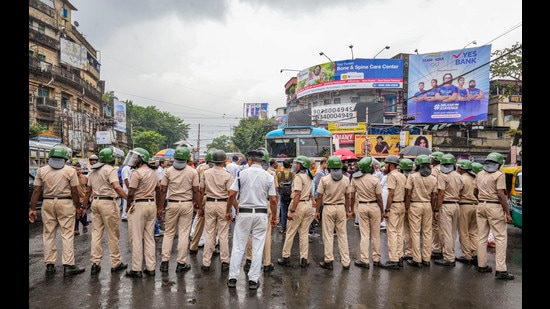Aug 17, 2024 08:57 PM IST
Public participation in setting the safety agenda for a locality and periodically evaluating police performance through open forum social audits is seen as essential to effective and accountable policing.
Day after day, we read about police misbehaviour: Police illegality, deaths in custody, police atrocity, excess use of force, abuse of office, extortion, bias, and lack of response.

Without visible punishment or corrective measures to make sure the same doesn’t happen again, the inevitability of malfeasance has beaten the public into acceptance. Everything points to the need for more effective police. Crime is becoming more sophisticated. Ever more stringent laws that nibble away at constitutional protections have done nothing to make policing more effective.
It is not as if the pathways to better policing are not known. Recommendations on every aspect lie unattended. They include the 1903 British-appointed Fraser Committee on torture, the post-Emergency eight volumes of the National Police Commission in 1981, two Administrative Reforms Commissions, the seven Supreme Court directions in the Prakash Singh case in 2006 and the Verma Committee’s recommendations of 2013 that wrote a chapter on police reform after the Delhi gang rape.
Different interest groups give different reasons for stagnation. The leadership will point out that extraneous forces cut into internal decision-making, and internal lines of supervision and authority stand weakened to the will of outsiders. The constabulary will point to unfair working environments that see them working over long hours, seven days a week, in rough conditions, and perpetual equipment and personnel shortages where they are needed the most. Some of this is justified.
At 103.47 personnel per 100,000 people, India’s police-population ratio is amongst the lowest in the world. Since salaries eat up the lion’s share of budgets, little is left for infrastructure upgrades and people skilling. After the initial stint at induction, less than 5% receive any in-service training. Nationally, the cumulative spend on training sticks at around 1% of the overall police budget.
So how do we move ahead? One building block is certainly enhanced capacity. But the requirement of more boots on the ground has to be tempered with the notion of better personnel. Recruitment cycles that take anywhere between one to three years — and often had to be revoked because of malpractice — have to become regular, protected from taint, and most importantly, have to move from merely weeding out the most unsuitable to carefully selecting those best suited to law-abiding policing.
Training offers another simple building block. The Comptroller and Auditor General have documented the crumbling state of training institutes.
Much of police behaviour is defined by the relationship between the political executive and the police establishment. What accountability there is, faces inward and upward within the hierarchy or toward the bureaucrat and the legislator. The layers of external oversight like the human rights commissions and police complaints authorities that have been set up at taxpayer expense are yet to show they are the cause of any discernible improvement in policing culture. The public has little role to play.
Yet, communities are the main beneficiaries of good policing and the main victims of bad. Public participation in setting the safety agenda for a locality and periodically evaluating police performance through open forum social audits is seen as essential to effective and accountable policing. Social audits, involving all segments of a local population, set a gauge for satisfaction and future fine-tuning. They provide a rare moment for the community at large to mediate grievances in a safe space. The joint exercise of police people and political representatives also builds a better understanding of the challenges the police face. Done across a state, it sets up healthy competition between districts. This would be a true measure of decolonised policing.
Maja Daruwala is chief editor, India Justice Report, and senior advisor, Commonwealth Human Rights Initiative.The views expressed are personal


